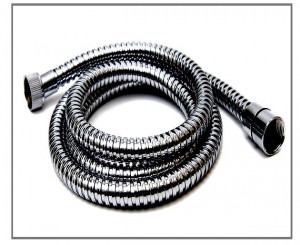Unfiltered Recruiting

A recruiter who is like a filter-free hose is a pure transmission channel, one that transmits information from employer to applicant and in reverse, “as-is”—no editing, no embellishments, no vetting, no selective emphasis or de-emphasis and no “noise”.
That kind of recruiter probably doesn’t exist—not as a professional, anyway. But, why not?
That’s as fair a question as it is a seemingly “dumb” one. Yet, despite all the obvious reasons unfiltered professional recruiting doesn’t exist, there may be some value in asking, “But what if?”
The Consequences of Unfiltered Recruiting
Consider what the results of having unfiltered recruiting are likely to be:
- The recruiter becomes a kind of courier—a messenger who is not part of the message, apart from the meta-message of interest expressed or denied by one or both of the other two parties by having the recruiter as an intermediary. That reduces the responsibilities, liabilities and the workload of the recruiter.
From that standpoint, unfiltered recruiting would be a “good thing” for a recruiter who doesn’t relish a real challenge, but probably not very interesting otherwise.
- From both the employer and applicant standpoints, unfiltered recruiting is a mixed blessing: On the one hand, nothing that they want to communicate will be left out, distorted, mis-sequenced or otherwise unfavorably modified or contaminated; on the other, what they shouldn’t communicate as-is will be, without the benefit of recruiter guidance and perspectives.
This suggests that an employer or applicant who is sure—or, better yet, knows—his message is perfect, truthful or not, should seek out a “minimalist” recruiter—one who is unlikely to try to improve on perfection. Friends can frequently play that role, by serving only as an introducing go-between and ad hoc, de facto recruiter.
A hiring employer who is an anxious or rigid micro-manager will probably encourage his recruiter to behave more like a minimalist than a hands-on intermediary and prefer not to allow the recruiter much leeway in job presentations, opting instead for very scripted ones of the sort that define telemarketing.
Alternatively, seeking out an insanely busy road-runner recruiter might work as a decent approximation to finding a pure minimalist “hose” recruiter, since such a frazzled recruiter would have little time to invest in vetting or tinkering with the messages.
That pure unfiltered approach can work and work very well by accomplishing two things:
1. Convincing both parties only that they should meet
2. Only convincing both parties that they should meet—i.e., doing nothing else besides #1.
Such a full-time minimalist recruiter would be—to switch metaphors mid-hose—a professional magnet and nothing more, whose job is to attract employer and applicant to oppositely charged and energized poles. But for that to work, both employer and applicant would have to be very cocky and allow the recruiter to be very lazy or busy looking after other clients.
- Like a courier or a hose, the minimalist non-filtering recruiter can still modify the impact of a message without altering its contents. In all three cases of courier, filter-free hose or any recruiter, this is accomplished by varying the timing or volume of flow.
And like an overdue courier or a low-pressure dripping hose, a minimalist recruiter can dramatically modify the impact of a message by speeding up or slowing down its delivery. Faster communicates strong positive interest, even faster—perhaps over-eagerness. Slower transmission can suggest thoughtful reflection; even slower–resistance, flagging interest and irresponsibility.
It is also possible to have the same results by modifying the “diameter” of the hose in addition to or instead of the transmission speed. This means packing more information into each message, in contrast to delivering each one faster.
In practical, concrete form this can be accomplished by covering more or less in each interaction with applicant and employer, in addition to or instead of varying the intervals between contacts.
This means that even though no recruiter is ever pure hose or courier, part of the job, for minimalist and non-minimalist recruiters alike, is to leverage or respect transmission time and “mass” or “density” for messages going back and forth.
…just like a horseback courier on back roads or water coursing through a hose at just the right speed and pace, and with just the right amount of payload, payoff information.

